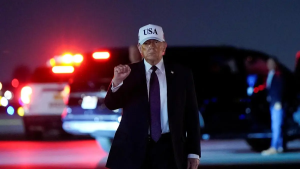Dhillon Highlights State-Level Authority Over Mail-In Voting

Assistant Attorney General for the Civil Rights Division Harmeet Dhillon told a news program that Americans have valid concerns about mail-in voting, emphasizing the need to focus on state-level actions. She stated that under current election laws interpreted by the Supreme Court, states are responsible for making those laws. Dhillon noted that mail-in voting cannot be arbitrarily changed or outlawed by the federal government.
She explained that while President Donald Trump and Attorney General Pam Bondi could theoretically change things nationally, the Democrats previously tried to pass H.R. 1 in the last administration. “We don’t really want that,” she said, “we have a system of federalism.” Dhillon stressed that critical actions must be developed at the state level, urging people concerned about mail-in voting to focus on their own state.
At the federal level, Dhillon mentioned some related proposals are slow to move, noting that Congress could do things regarding federal funding and better standards but has not done so. She added that she has testified in Congress and hopes one day they will. “But for now,” she said, “what we can do at the Department of Justice is, we have jurisdiction over several federal civil rights laws involving voting, and we are vigorously enforcing those, including in this last election over the objections of a couple of blue states, but we did send election monitors where they were requested, and I could have sent more if more people had requested them.”
The U.S. Supreme Court agreed on Nov. 10 to hear Mississippi’s defense of a state law challenged by Republicans that allows a five-day grace period for mail-in ballots received after Election Day to be counted, a case that could lead to stricter voting rules around the country. The court is expected to hear arguments and issue a ruling by the end of June.
Dhillon’s remarks focused on the importance of state-level efforts in addressing mail-in voting concerns, with an emphasis on federalism and the role of local governments in shaping election laws.




